Classification difference of flavor characteristics between Indonesian Sumatra Mantenin and Brazilian Colombian coffee bean varieties
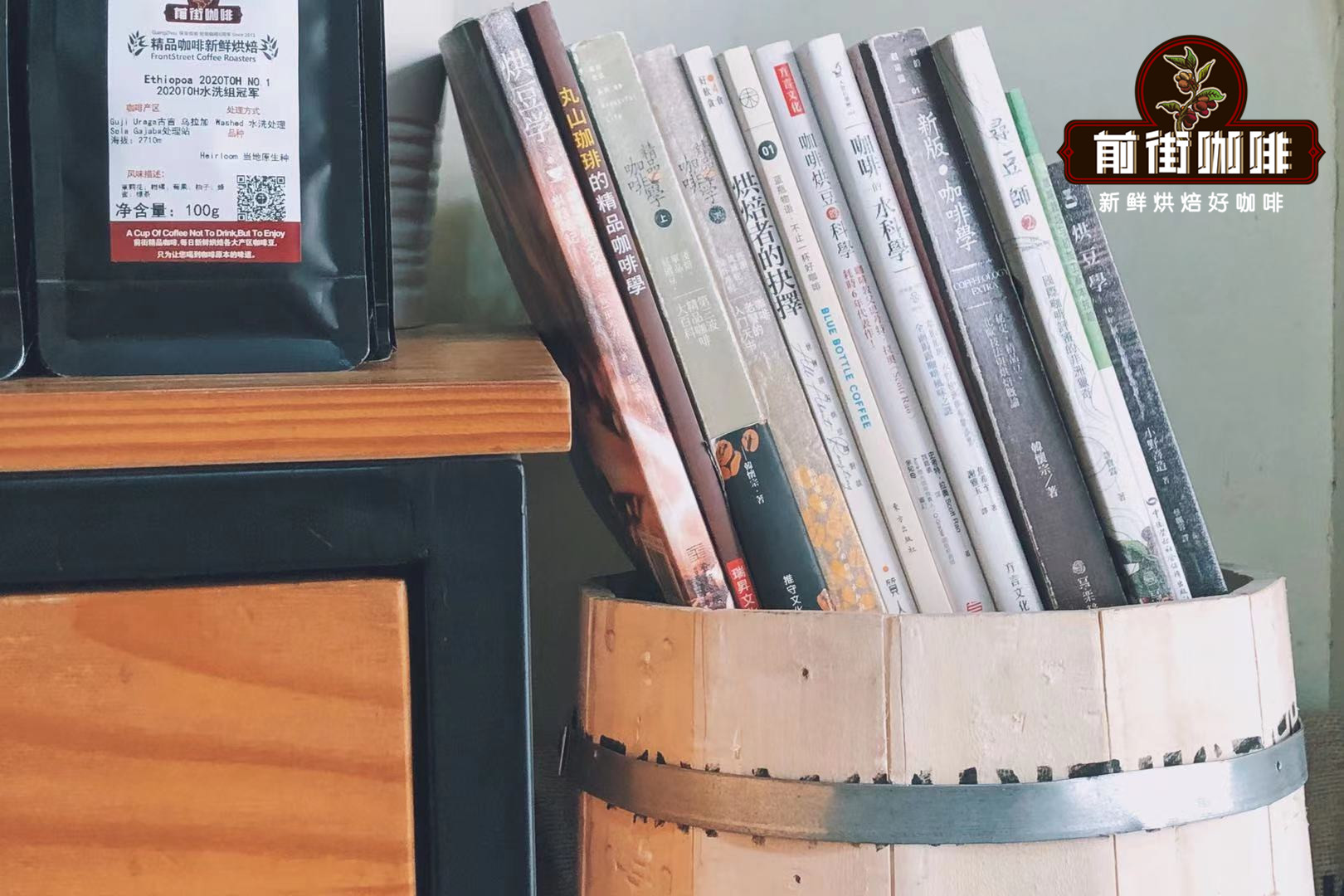
Professional barista communication, please pay attention to coffee workshop (Weixin Official Accounts cafe_style)
Front Street Coffee often encounters guests asking how to choose coffee beans, because there are more than 30 kinds of coffee beans currently displayed in Front Street Coffee Store and Tmall flagship store, each with its own characteristics, and other coffee producing areas will be updated from time to time. The purpose of Front Street Coffee is to let everyone who comes to Front Street Coffee drink their favorite coffee and learn about different coffee flavors around the world. Our original intention is to understand each coffee variety, each coffee producing area, each processing flavor, Front Street Coffee hopes that every coffee lover can understand the coffee world more deeply, today we will introduce Colombia coffee, Brazilian coffee, mantinin coffee.
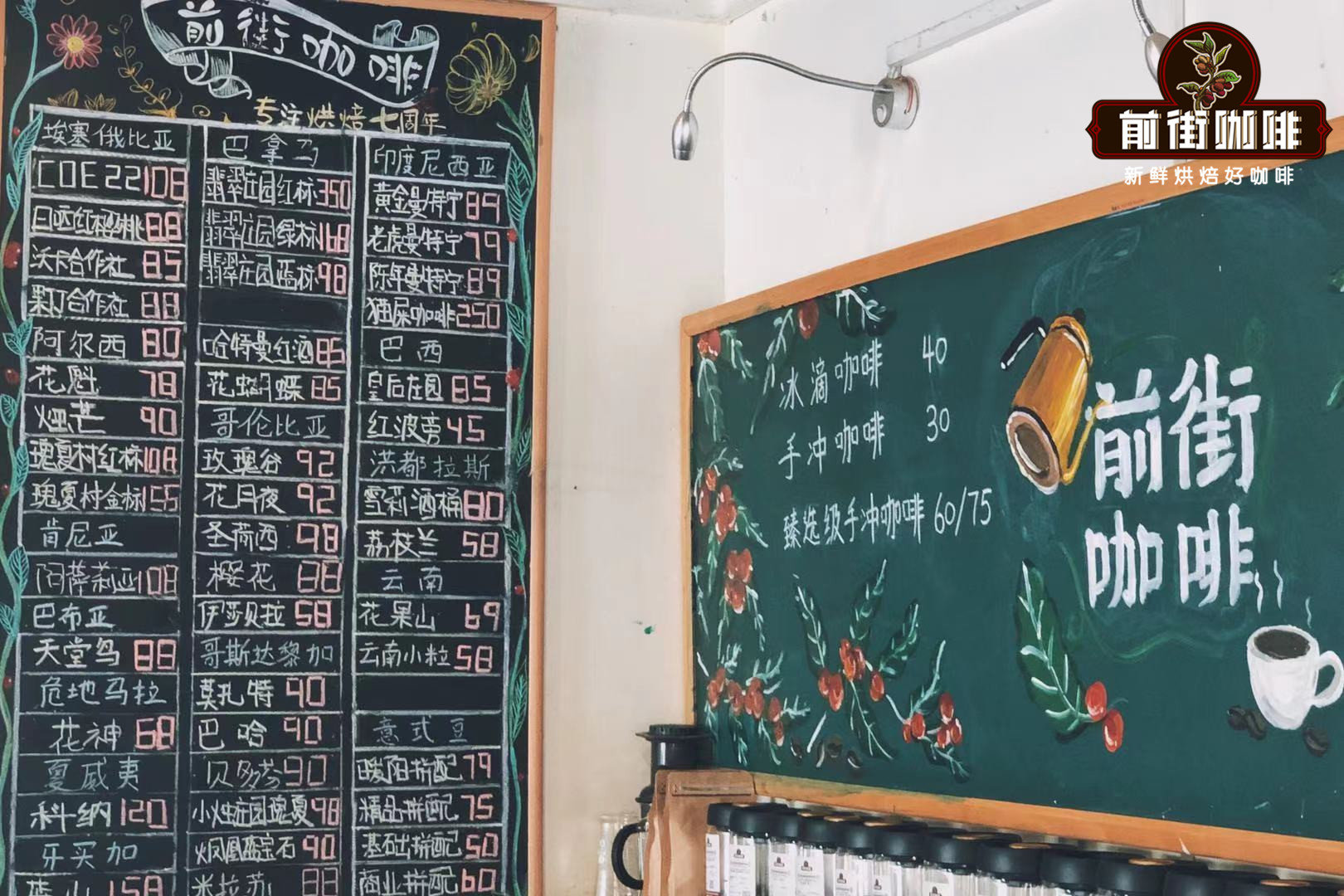
Coffee background contrast
Colombia Coffee Country Introduction
Colombia's favourable climate provides coffee with a true "natural pasture". The country has also become the second largest coffee producer after Brazil, as well as the world's largest exporter of Arabica coffee beans and the world's largest exporter of washed coffee beans. In Colombia, approximately 875,000 hectares of coffee are grown in 590 municipalities and 14 coffee-growing areas. On average, 75 percent of the country's products are exported worldwide, with crops accounting for 10 to 16 percent of agricultural GDP. To Front Street's surprise, most of this coffee comes from small farms, with 60 percent of Colombia coffee farms growing less than one hectare and only 0.5 percent growing more than 20 hectares.
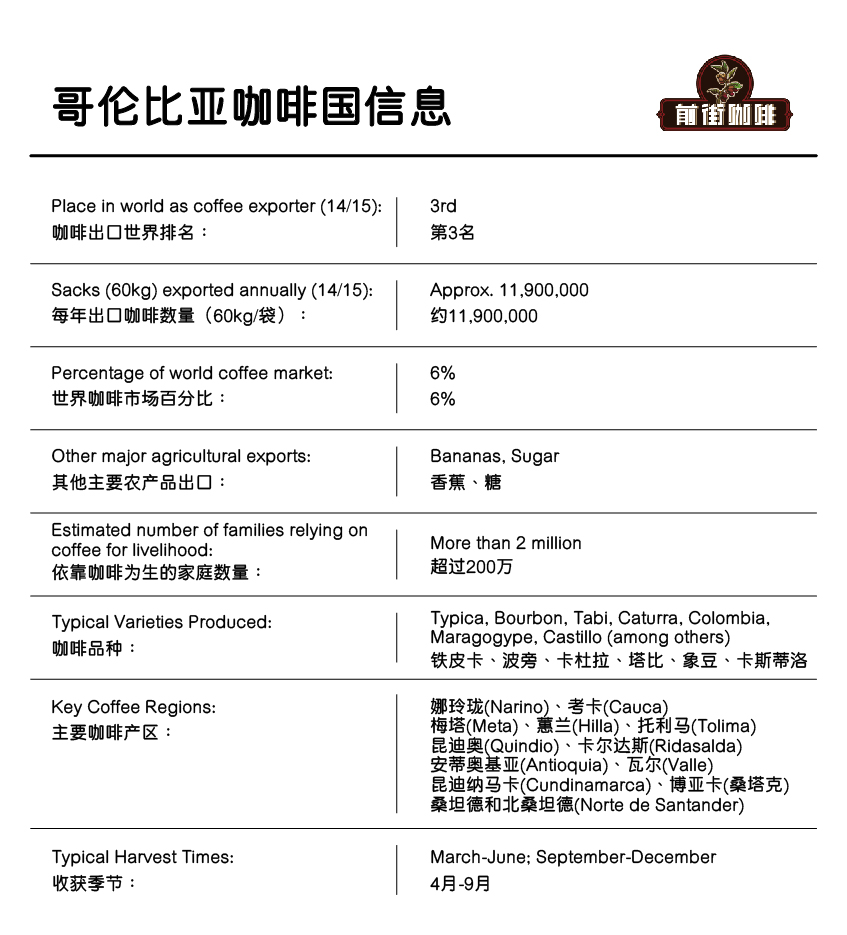
Colombia coffee is a representative of Arabica coffee species, but also a traditional deep roast coffee, with strong and memorable flavor. Colombia coffee beans are characterized by rich and thick aroma, with a clear quality of acidity, high balance, sometimes with nutty flavor, aftertaste, both appearance and quality, Colombia coffee is top grade.
Brazil Coffee Country Introduction
In the 18th century coffee began to be introduced into Brazil. Brazil's emerging middle class is driving rapid growth in coffee consumption in the country, which is growing at about 5% a year. Coffee consumption per capita has surpassed that of the United States to become the world's largest coffee consumer. Its output is the world's first, as long as the country's coffee production is affected, it will directly affect the fluctuation of global coffee. In the Front Street Coffee ration bean series, there is a Brazilian coffee bean with obvious chocolate nut flavor, mellow and moderate, which is the best choice for friends who don't like sour coffee. Front Street Coffee not only includes Brazil in the ration bean series, but also finds Brazilian coffee beans in the seasonal ear coffee series, which shows that Brazil, as a coffee-producing country, is indispensable in the classic coffee flavor.
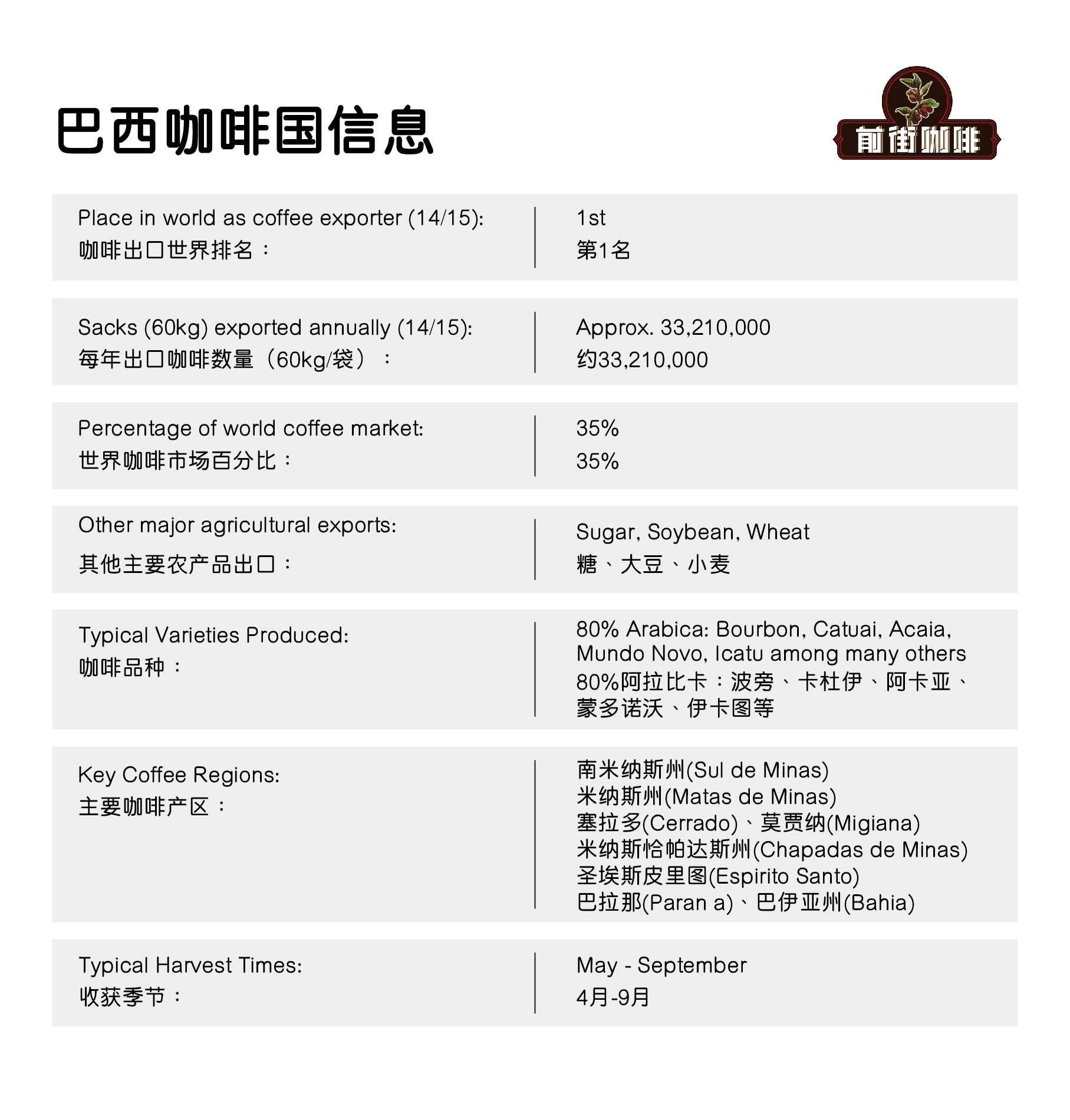
Brazil is located in the Latin American region of the Western Hemisphere, located in the eastern part of South America, on the west coast of the Atlantic Ocean, bordering all countries on the South American continent except Ecuador and Chile; most of its territory is located between the equator and the Tropic of Capricorn, making it the most extensive tropical country in the world. 1/3 of the territory belongs to tropical rain forest climate, 2/3 belongs to tropical grassland climate, superior tropical natural conditions are very suitable for the growth and production of tropical cash crop coffee.
Brazil makes full use of the tropical geographical environment, attaches importance to coffee production and sales, so that coffee production, export volume, per capita consumption has been ranked first in the world for many years, known as the "coffee kingdom."
Mantenin's history
Mandenin is not the name of the region, place name, port name, or coffee variety, but a transliteration of the Indonesian mandheling people.
During the Japanese occupation of Indonesia in World War II, Japanese soldiers drank delicious coffee there, and later returned to Japan. They were obsessed with the delicious coffee there, so they used the relationship of trade friends to ask the local people to help collect high-quality coffee beans, including this Mantenin. The Japanese liked this coffee bean very much, so they asked for the name. Because the commercial source was inconvenient to disclose, the local people casually said "Mantenin", so Mantenin mistakenly hit the coffee bean. The locals mentioned above are actually the owners of Indonesia PWN Company (Pwani Coffee Company), which buys gold mantinin coffee beans at Front Street Coffee.
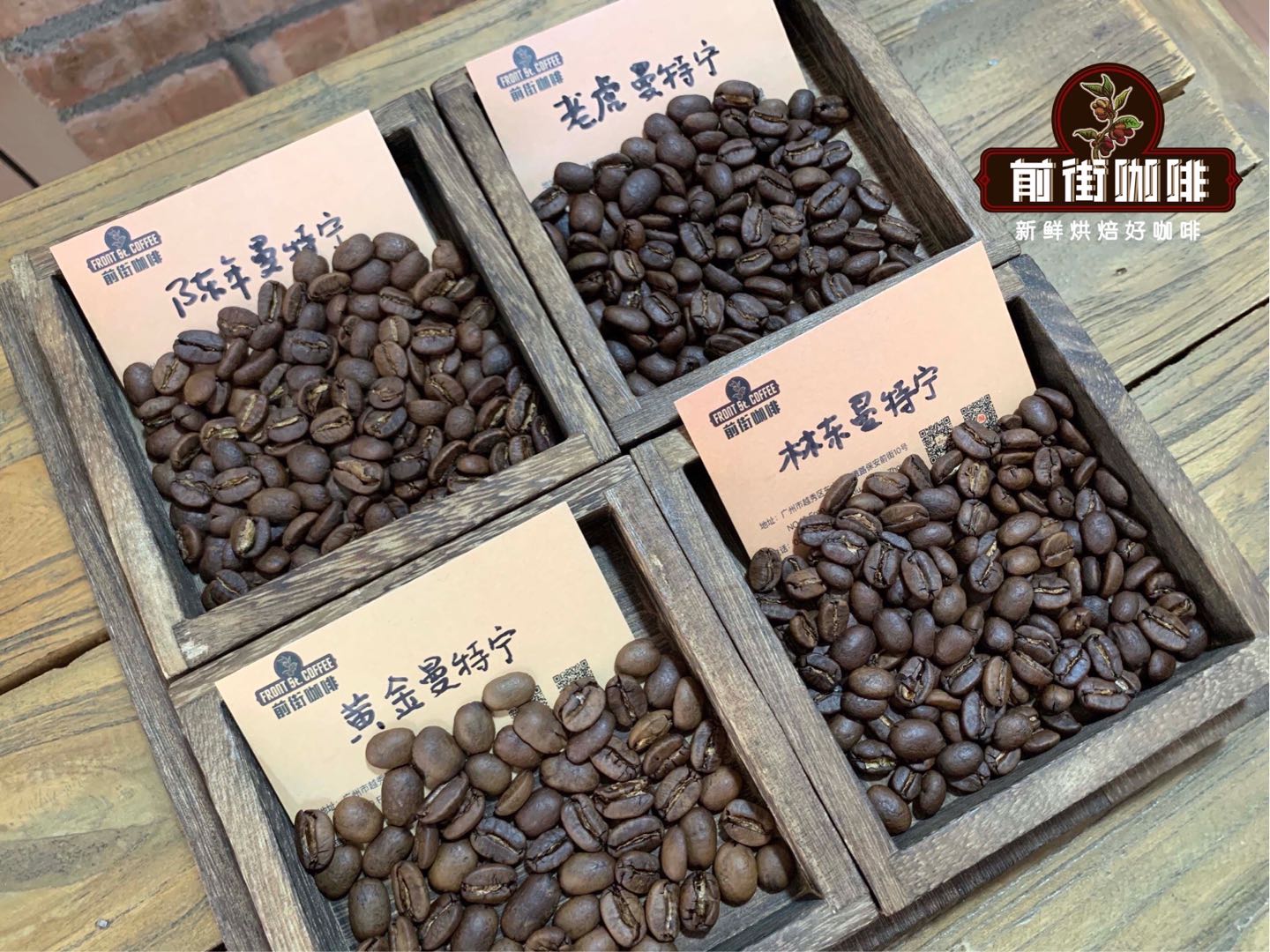
Indonesian coffee is mainly produced in Sumatra, Java and Sulawesi, among which Sumatra produced by the "Mantenin" is the most famous. Mantenin is also known as Sumatra Coffee, Lake Tawa in the north can be called Aceh Coffee or Lake Tawa Coffee, Lintong and Toba Lake area can be called Mantenin. Strictly speaking, coffee beans produced in the Toba Lake region (northwest of Sumatra, Indonesia) are traditionally known as "mantenin."
Coffee Grading Comparison
Colombia coffee grading system
Colombia uses bean size as a criterion for differentiation. Excelso and Supremo are both large beans, but the latter is a little bigger than the former. Colombia coffee bean characteristics are often cited as an example: rather than bean size, it is helpful to know the origin of the coffee bean.
Supremo: 17 items
Excelso: 14 - 16.5 mesh
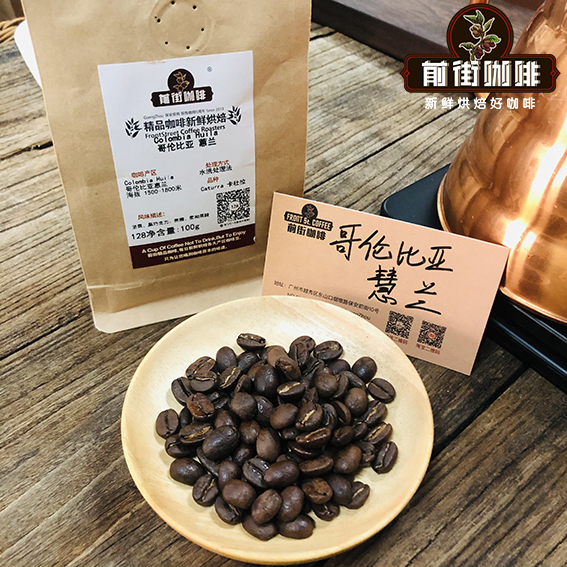
Brazilian coffee grading system
Brazil is one of the lowest-lying coffee-growing countries in Central and South America, so instead of emphasizing hard beans that can only be grown at high altitudes, as other countries such as Colombia do, Brazil ranks coffee beans according to particle size, defect rate, cup test score and flavor.
Flavor rating: from high to low, Strictly Soft very soft, Soft a little soft, Hardish not smooth, Rioy iodine choking taste.
Defect rate classification: according to the number of defective beans, every 300g of raw beans, 6 defective beans NY.2. A perfectly flawless bean is NY.1, and a perfectly flawless bean is rare and unable to maintain a certain supply, so the best raw beans in Brazil are NY.2.
The cup quality rating is from high to low: Fine Cup, Fine, Good Cup, Fair Cup, Poor Cup, Bad Cup. FC (Fine Cup) and GC (Good Cup) are more common.
Particle size classification: In Brazil, the largest number of coffee beans is 19 mesh, but the yield is not much, so 17 mesh and 18 mesh are the highest grades.
Mantenin coffee grading
G1, less than 11 defective beans.
G2, 12 to 25 defective beans.
G3, 26 - 44 defective beans.
G4a, 45 to 60 defective beans.
G4b, 61 - 80 defective beans.
G5, 81 to 150 defective beans.
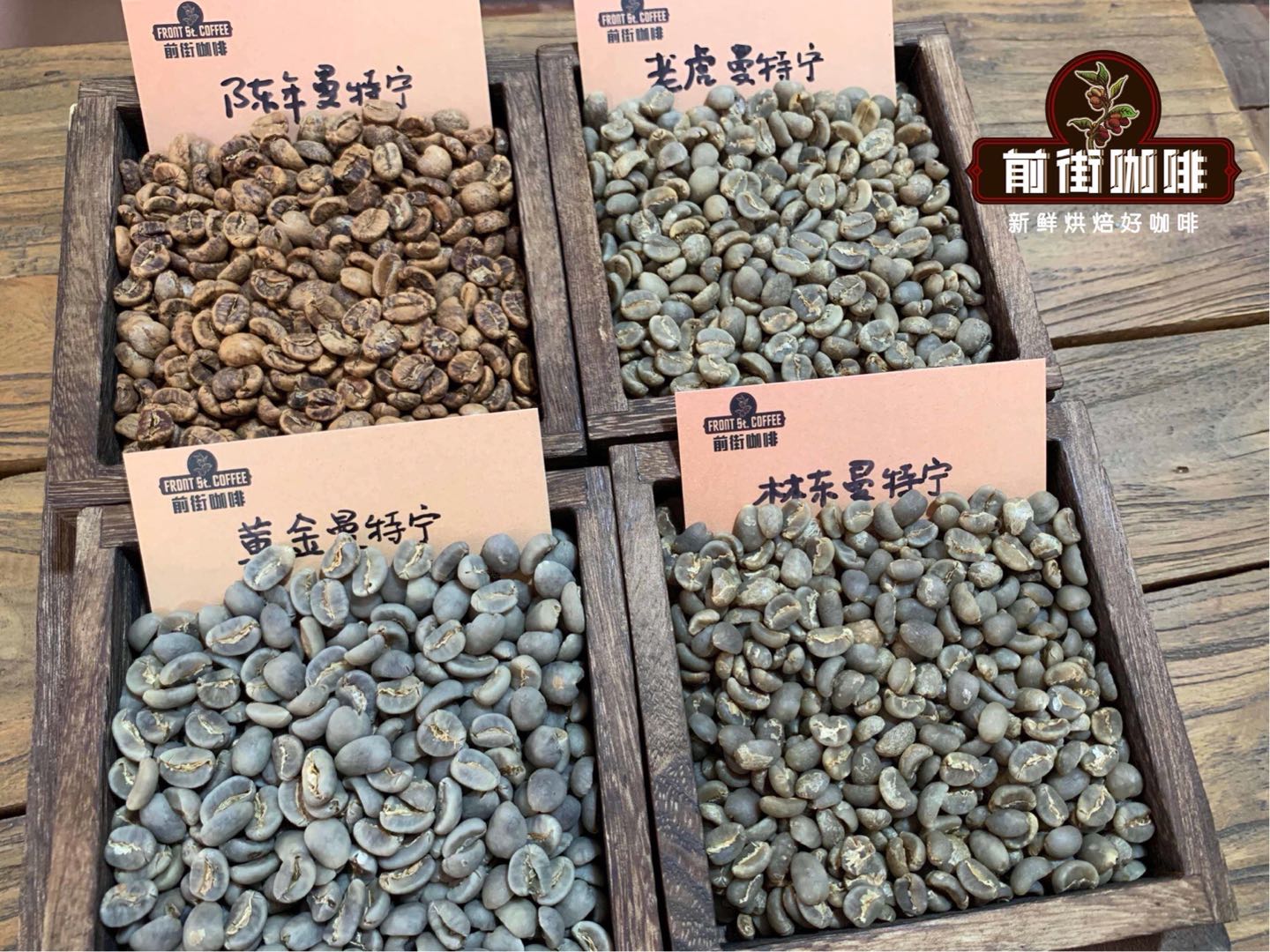
Brewing Flavor Comparison
Qianjie Coffee·Colombia Rose Valley
Manor: Colombia Big Tree Manor
Production area: Santander
Treatment method: anaerobic double enzyme washing
Altitude: 1700 m
Breed: Cadura
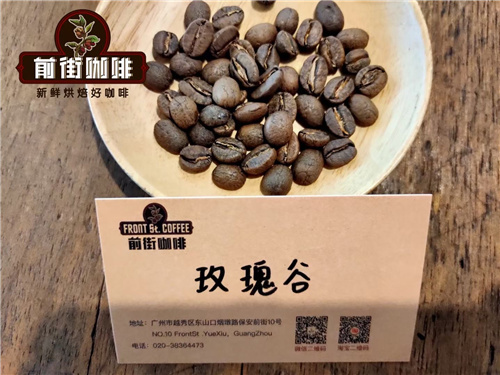
Baking advice
The temperature of soybean entering: 180℃, yellowing point: 600 ", 151℃, first explosion point: 948", 183.3℃, development after first explosion: 210 ", 197℃.
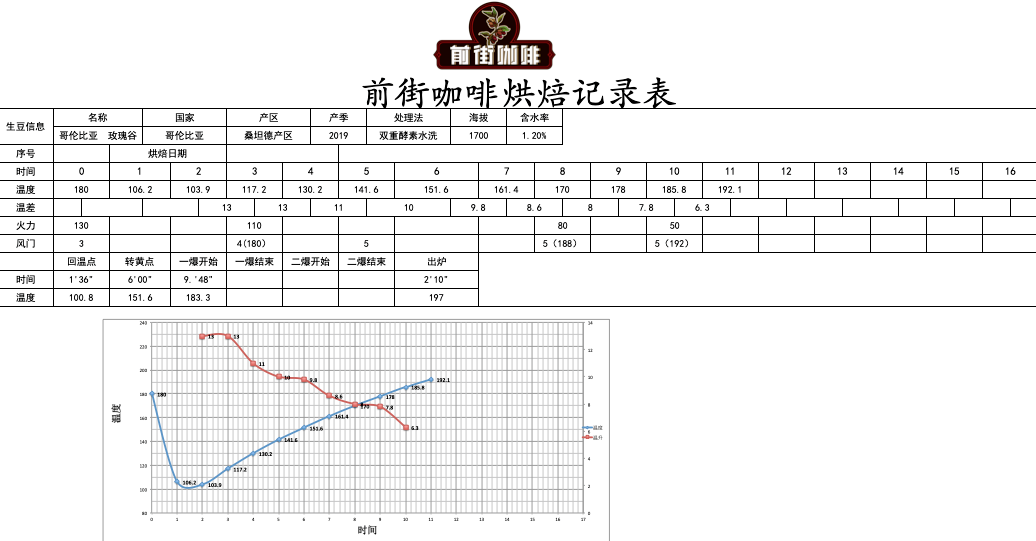
brew parameters
Filter cup: Hario V60
Water temperature: 90-92℃
Powder: 15g
Powder water ratio: 1:15
Grindability: BG 6S (80% pass rate of No.20 sieve in Chinese standard)
Brewing technique
The first stage of water injection is stewed with 30g water for about 30 seconds. The second stage of water injection is divided into stages when the water level drops to 125g water. When the water level drops to 225g, the third stage of water injection is continued. When the water level drops to 225g water, the filter cup is removed.(Steaming starts) The extraction time is 2 '00".
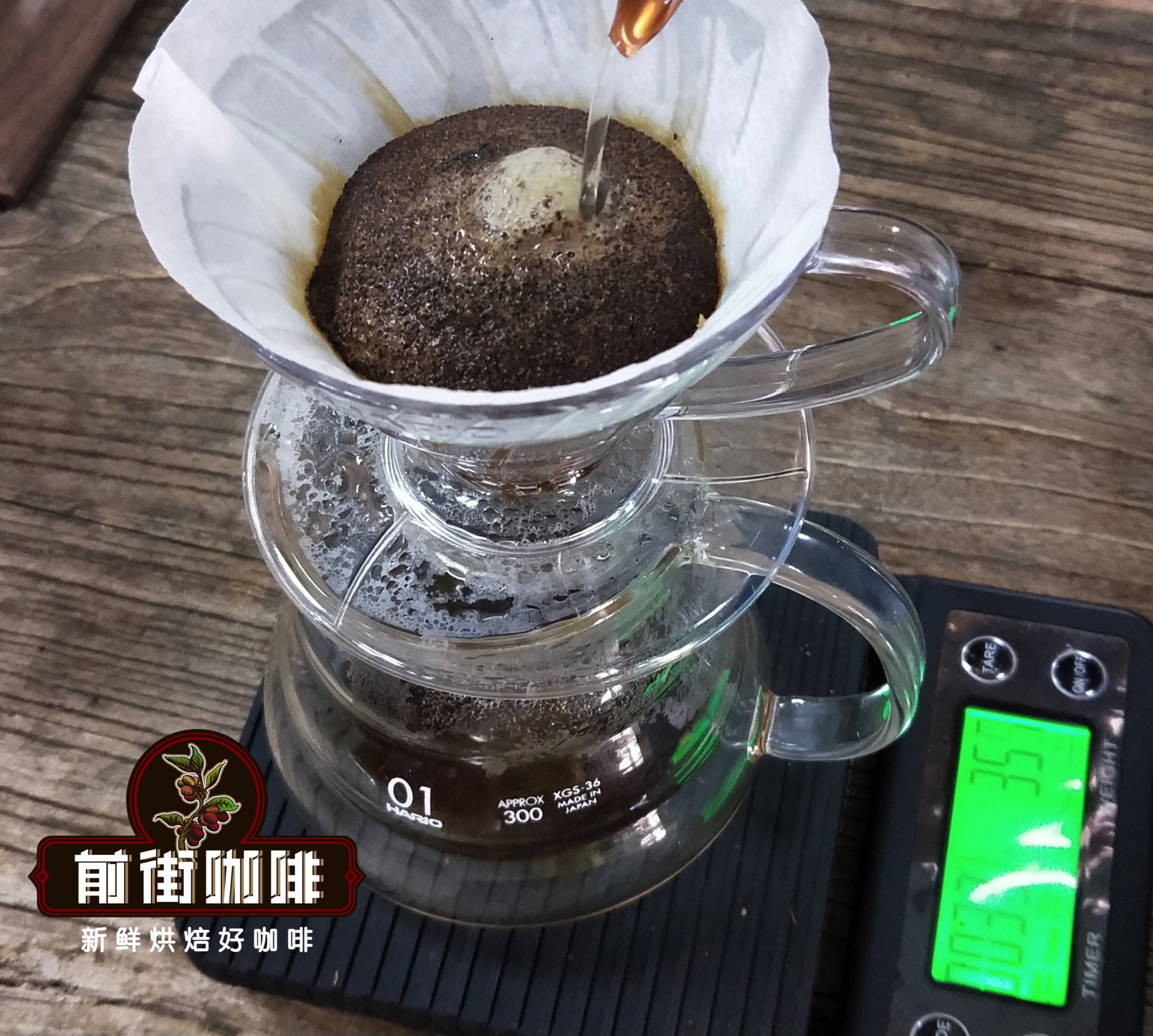
Flavor description
Floral, bright acidity, prominent acidity and sweetness, juicy taste, grape, strawberry, green plum.
Qianjie Coffee·Brazil Queen Manor
Region: Morgiana
Estate Name: Fazenda Rainha
Owner: Regina Helena Mello de Carvalho Dias belongs to the Carvalho Dias family
Breed: Yellow Bourbon, Yellow Bourbon
Treatment: Solarization
Altitude: 1400 - 1950m
bake analysis
Raw beans solid texture, good flavor performance, with a slight orange peel and spice flavor, raw beans moisture content 9.9%
This bean moisture content is relatively low, which makes the bean heat absorption ability is very strong, so the front street coffee roasting plan is intended to enter the beans at 200 degrees, and then the fire small damper speeds up the dehydration, and after the dehydration stage, open the stroke door and medium fire to allow the Maillard reaction, the time is not too rapid, close to the end of the explosion.
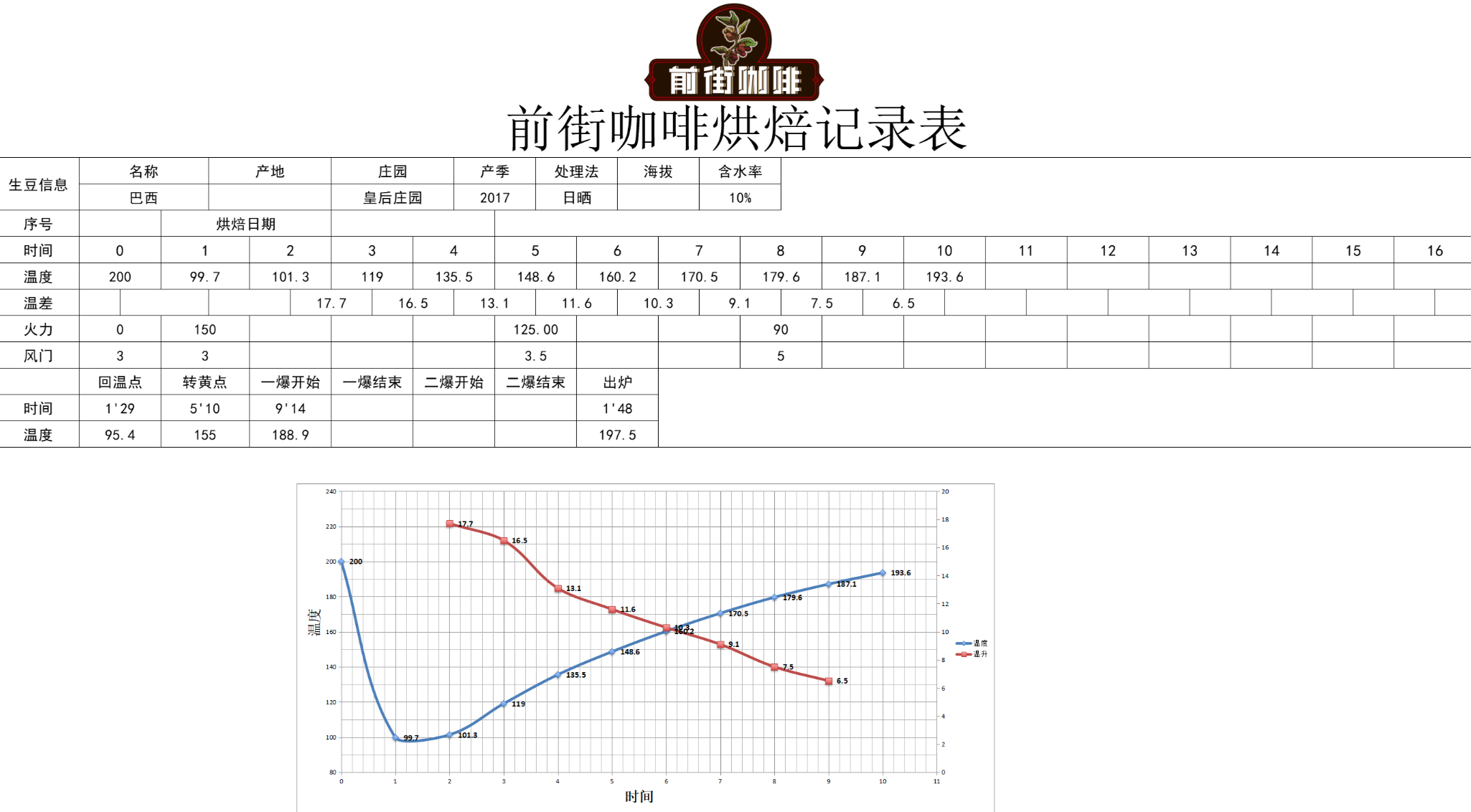
Front Street Coffee tried to bake 4 times before and after, and finally chose between 1 minute and 45-2 minutes after the end of the explosion. The taste has obvious sweetness, but it is not so boring sweet, with a light lemon aroma in the background. This aroma is more prominent in the wet stage, and the latter stage has obvious dark chocolate flavor. The overall feeling is relatively round, reflecting the overall Brazilian characteristics, but also lively.
brew parameters
Filter cup: Hario V60
Water temperature: 88-90℃
Powder water ratio: 1:15
Degree of grinding: moderate grinding
Brewing technique
The first stage of water injection is stewed with 30g water for about 30 seconds. The second stage of water injection is divided into stages when the water level drops to 125g water. When the water level drops to 225g, the third stage of water injection is continued. When the water level drops to 225g water, the filter cup is removed.(Steaming starts) The extraction time is 2 '00".
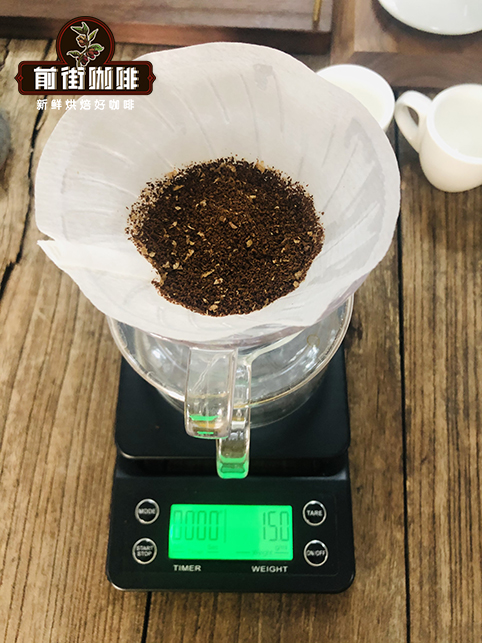
Flavor description
Bean sweet, clean, semi-sun will make her acid slightly bright but with sweet knot back to excellent, some even have tropical fruit aroma, especially when brewing aroma overflowing, more people like. Sugar cane juice fresh sweet, black tea, soft fruit sweet, obvious nutty flavor, balanced and soft acidity, bitter slightly clean, rich chocolate aroma and nutty flavor, bright and refreshing taste, smooth and delicate taste.
Qianjie Coffee·Golden Mantinin
Production area: Aceh Gayo Mountain
Altitude: 1100-1600m
Type: Iron Pickup
Treatment: wet planing
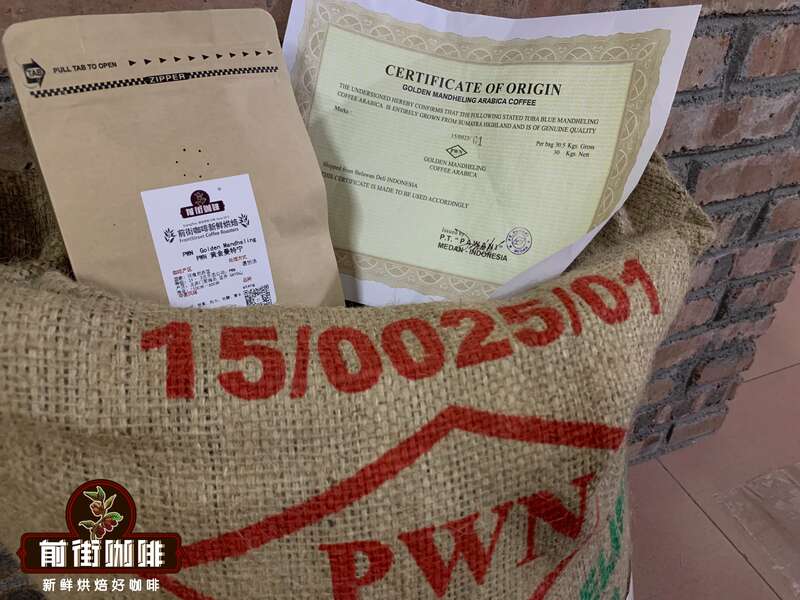
baking curve
Front Street Coffee believes that gold mantinin belongs to raw beans with more moisture, and there is a higher deviation value in moisture with sun-dried beans, so special attention should be paid when dehydrating. Raw beans with high moisture content can be tasted after being put into raw beans. Close the damper immediately, steam for 30 seconds and then open it to 3 until the color of raw beans turns light green or white. Open the damper to 4, and open it to 5 (maximum) after explosion.
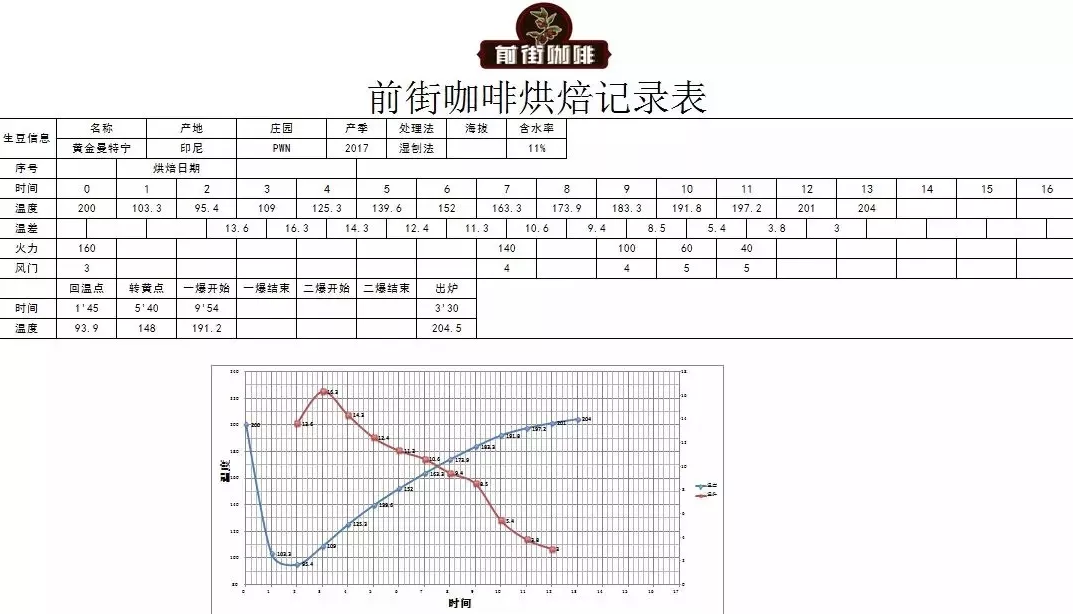
brew parameters
KONO filter cups are recommended for daily brewing of mantelin, because the taste it can bring out will be more mellow and the taste performance will be more direct. Kono filter cup only exhaust part is in that quarter of the ribs, when the water level over the ribs, the filter cup water volume continues to rise, through the weight of the water to increase the pressure, because the outlet is relatively small, can continue coffee particles and water contact time a little longer, with the flow of water to drive this can be more effective to bring out soluble substances, front street coffee such brewing method, generally can achieve the guests expected high mellow effect.
Filter cup: Kono filter cup
Water temperature: 86℃
Powder: 15g
Powder water ratio: 1:15
Abrasion: medium fine grinding (BG #6W)
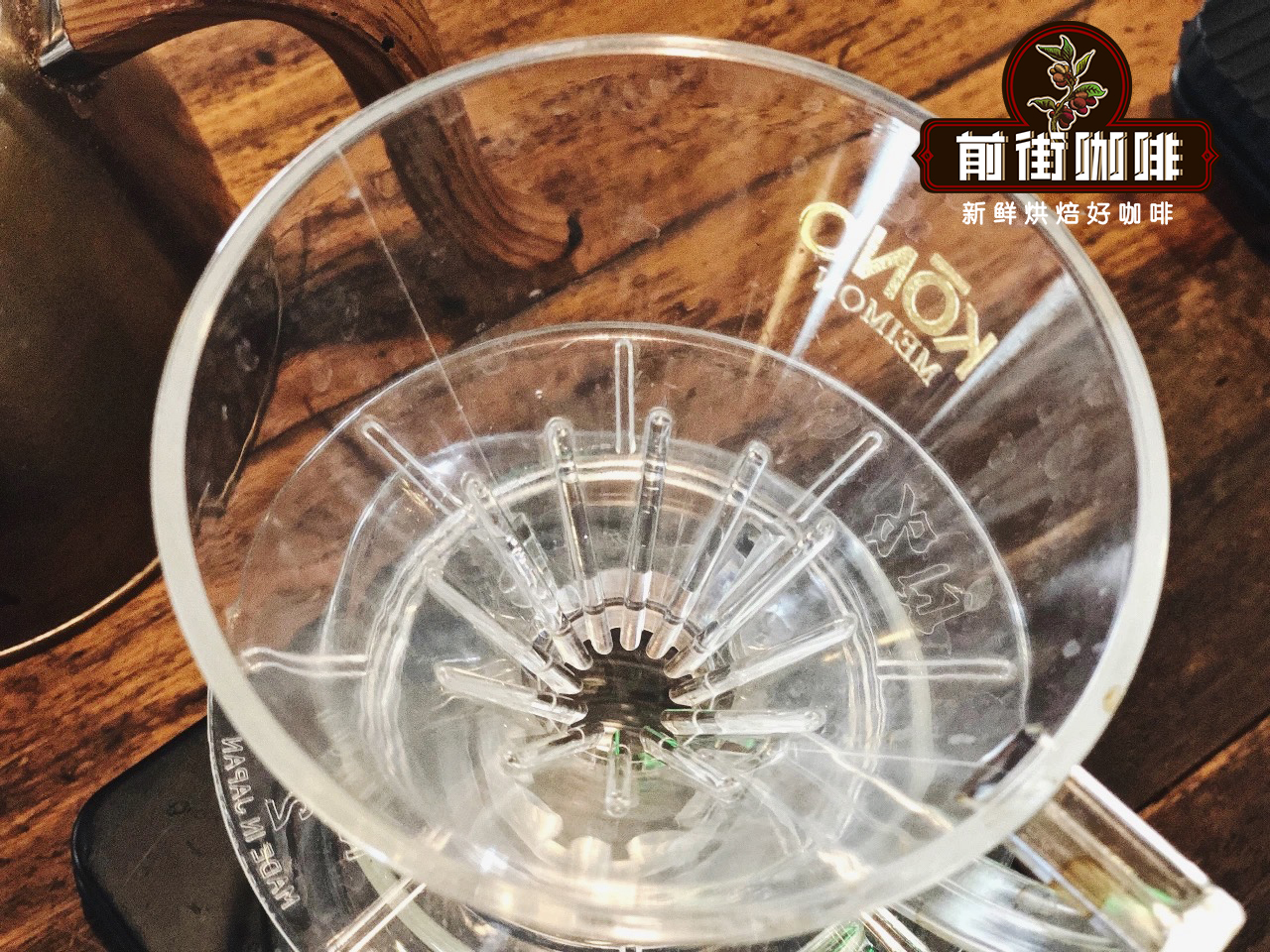
Brewing technique
staged extraction
Steaming with 30g water for 30s, injecting water in a circle with small water flow until 125g, and stopping injecting water until 225g when the water level is about to expose the powder bed, removing the filter cup when the water level is about to expose the powder bed, and extracting for 2 '00".
Flavor description
Multi-layered, full-bodied and clean, well-balanced, rich nutty and caramel aromas with chocolate notes and a lasting finish.
More fine coffee beans, please add private WeChat Qianjie Coffee, WeChat: kaixinguoguo0925
Important Notice :
前街咖啡 FrontStreet Coffee has moved to new addredd:
FrontStreet Coffee Address: 315,Donghua East Road,GuangZhou
Tel:020 38364473
- Prev
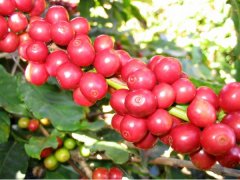
Colombia Coffee Flavor Features Why Starbucks Choose Colombia Coffee Beans
Professional barista exchanges, please pay attention to coffee workshop (Weixin Official Accounts cafe_style) Colombia coffee flavor characteristics: Colombia is the second coffee producing country, but also the country exporting the most Arabica beans, this coffee is full of rich and full taste, containing caramel sweetness. Mild taste, lasting aftertaste like a gentleman in coffee, moderate is the best choice for light coffee
- Next
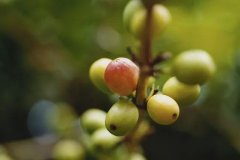
Columbia Manor Coffee brewing experience Colombian Coffee Why do you often feel bitter and cool in pomelo peel?
For professional barista communication, please follow the coffee workshop (Wechat official account cafe_style). This is the Black Knight-the Black Knight is simply the top 10 in the semi-finals (Top 10). On the last day of the Top10 Finals, disqualified for some reason, Top10 fell from the clouds before it could be called the Black Knight. M baking degree full city, sweet and sour taste, chocolate burnt
Related
- Detailed explanation of Jadeite planting Land in Panamanian Jadeite Manor introduction to the grading system of Jadeite competitive bidding, Red bid, Green bid and Rose Summer
- Story of Coffee planting in Brenka region of Costa Rica Stonehenge Manor anaerobic heavy honey treatment of flavor mouth
- What's on the barrel of Blue Mountain Coffee beans?
- Can American coffee also pull flowers? How to use hot American style to pull out a good-looking pattern?
- Can you make a cold extract with coffee beans? What is the right proportion for cold-extracted coffee formula?
- Indonesian PWN Gold Mandrine Coffee Origin Features Flavor How to Chong? Mandolin coffee is American.
- A brief introduction to the flavor characteristics of Brazilian yellow bourbon coffee beans
- What is the effect of different water quality on the flavor of cold-extracted coffee? What kind of water is best for brewing coffee?
- Why do you think of Rose Summer whenever you mention Panamanian coffee?
- Introduction to the characteristics of authentic blue mountain coffee bean producing areas? What is the CIB Coffee Authority in Jamaica?

